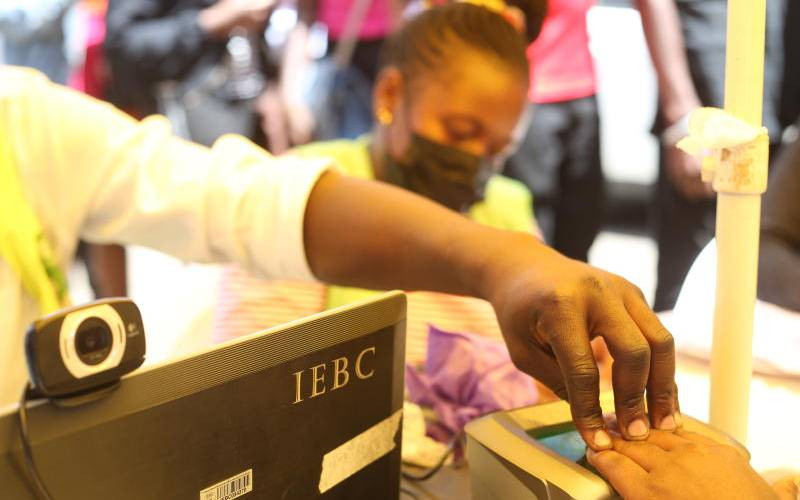
The High Court has upheld the constitutionality of Section 36(8) of the Elections Act, giving the Independent Electoral and Boundaries Commission (IEBC) a major victory in its handling of the 2022 County Assembly nominations.
The court’s decision, delivered by Justice Lawrence Mugambi, dismissed a petition filed by several groups challenging legality of the provision, affirming that the IEBC acted within its legal rights throughout the 2022 County Assembly nomination process.
The petitioners included the Kenya Human Rights Commission (KHRC), the United Disabled Persons of Kenya (UDPK), and the Action Network for the Disabled.
They had contested the legality of Section 36(8), arguing that the gazetted list of nominees did not comply with the constitutional requirements for inclusive representation, particularly for marginalised groups such as women, youth, and persons with disabilities.
They claimed the IEBC had failed to ensure political parties followed the law when submitting their nomination lists. Justice Mugambi, however, found that Section 36(8) was properly enacted and aligned with the Constitution, affirming that the IEBC’s role in publishing the nomination lists was in full compliance with the law.
“The court finds no merit in the petitioners’ claims that Section 36(8) is unconstitutional. The provision was enacted in compliance with the Constitution, and the IEBC acted within its mandate by publishing the nomination lists,” Justice Mugambi stated in his judgment.
The judge stated that the section did not infringe upon constitutional principles, particularly regarding the representation of marginalized communities in the County Assemblies.
The petitioners contended that the nomination lists published by the IEBC on September 9, 2022, violated several provisions of the Constitution, including those requiring the inclusion of persons with disabilities, women, and youth in County Assemblies across the country.
The petitioners pointed out that counties such as Nyamira, Bungoma, Kilifi, Taita Taveta, Wajir, Marsabit, Isiolo, Meru, Tharaka Nithi, Machakos, Makueni, Turkana, West Pokot, Trans Nzoia, Baringo, Laikipia, Narok, and Kericho did not include persons with disabilities (PWDs) in their lists.
In some instances, youth representatives over the age of 35 were included, which they argued was contrary to the constitutional age limit.
They also raised concerns about gender representation, stating that men had been nominated as women, undermining gender representation requirements.
Additionally, they argued that some nominees were not residents or registered voters of the counties they were representing. The petitioners also argued that the final lists did not comply with the priority order set by political parties, as required by law.
They claimed certain individuals not on the original party lists were included in the gazetted lists, and in several counties, no youth representatives or persons with disabilities were nominated at all.
Stay informed. Subscribe to our newsletter
The petitioners sought a declaration that the nomination lists were unconstitutional and an order to compel the IEBC to re-conduct the nomination process to ensure full compliance with constitutional provisions. “We believe that the nomination lists published by the IEBC do not meet the constitutional requirement for inclusive representation. The lists fail to uphold the rights of marginalized groups and do not reflect the true intent of the Constitution,” said the lobby groups.
In its defence, the IEBC contended that Section 36(8) grants the Commission limited authority to oversee party nominations, focusing on ensuring compliance with legal requirements.



